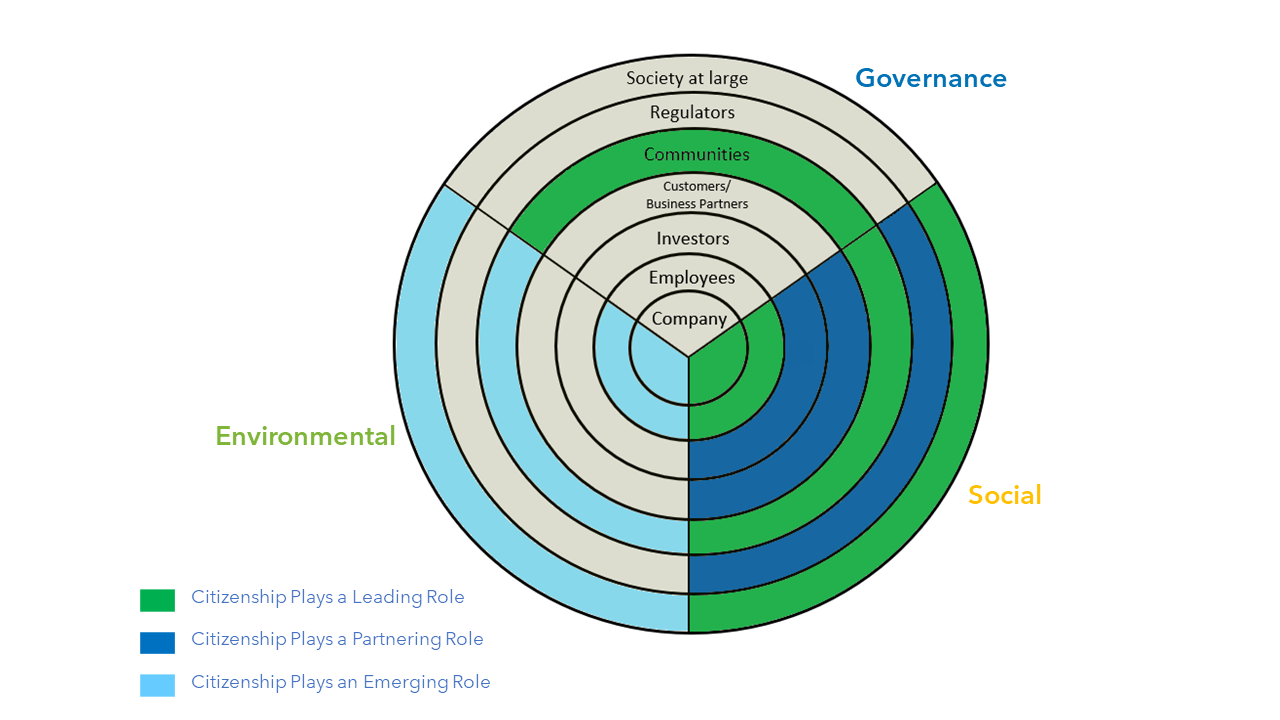Five Key Corporate Citizenship Insights from the Ongoing War in Ukraine
November 09, 2022 | Article
Corporate Citizenship During a Geopolitical Crisis, Part 6: Five Key Corporate Citizenship Insights from the Ongoing War in Ukraine
More than eight months since Russia’s invasion of Ukraine, the impact of the war continues to evolve and reverberate across the globe. On the ground, the war is exacting an extraordinary humanitarian toll, with basic human needs remaining unmet despite the efforts of international relief organizations and their governmental and corporate partners. In addition to shifting resettlements of the population within Ukraine, there are now an estimated 7 million refugees—up from 5 million refugees in the first two months of the war.
At this stage in the war and its global fallout, five key insights are emerging that have broad implications for corporate citizenship professionals.
Insights for What’s Ahead
- Corporate citizenship executives need to help their companies lay out a plan for a sustained and balanced response to crises. Despite the challenges of doing so, an impressive two-thirds of companies responding to our midyear C-Suite Outlook survey are providing humanitarian assistance.[1] But as we have seen with natural disasters, a relatively small percentage of companies are prepared to deal with the long-term direct effects of the war. For example, just 13.6 percent of the surveyed firms are helping with the long-term needs of refugees. There is a natural human impulse to respond with immediate help in a crisis; there is also the natural inclination to lose interest over time and move on to the next urgent need. The corporate citizenship function, especially in the case of the war in Ukraine, needs to retain a longer-term focus.
- Corporate citizenship executives, like leaders of other corporate functions, need to engage in ongoing scenario planning. The Ukraine war has taken an unpredictable path, with strong Ukrainian resilience on one side and the unsettling threat of nuclear escalation on the other. The broader effects of the war on supply chain shortages and disruptions, inflation, and economic hardship have also been greater than anticipated. That means corporate citizenship executives need to consider “what if” scenarios so that they are prepared to react in a timely manner as events unfold. While this kind of planning is often practiced in the risk management, crisis management, and strategic planning functions in companies, it should become ingrained in corporate citizenship as well.
- Corporate citizenship executives should be alert to, and take steps to manage, the potential disconnect between the priorities of senior management and the broader employee population. Our research shows the corporate world’s business response to the Ukraine war has been primarily driven by customers, regulators (as a result of sanctions), the board, and senior management more than the views of employees. This is in contrast to other events, where employee pressure has been the motivating force, as with the suspension of US corporate political action committee (PAC) contributions in early 2021[2] or the corporate response to the US Supreme Court decision in Dobbs.[3] The larger role senior management has played in driving a corporate response to the war in Ukraine can be viewed positively as an example of corporate leadership, but it can also lead to a disconnect with the broader employee population. For example, is the company devoting resources to respond to the Ukraine war at the expense of addressing local community needs that are the focus of employee concern? One way to reconcile the potential disconnect, at least in this instance, is to ensure that the humanitarian response to the war in Ukraine has a very local component as companies help their nonprofits grapple with the inflationary and recessionary pressures brought on by the war.
- Corporate citizenship executives should consider how their CSR priorities are aligned with their ESG priorities. The relationship between the corporate citizenship and ESG or sustainability functions will vary company by company, but it is clear that there is considerable overlap. As illustrated in the figure below, corporate citizenship plays a leading role in addressing many of the “S” issues in ESG. Many of the top impacts from the Ukraine war relate to ESG topics, including cybersecurity, supply chains, energy, compliance, and the rise in authoritarianism, according to a survey of C-suite executives The Conference Board conducted in June.[4] Companies should consider how corporate citizenship can help address these issues; for example, by funding organizations devoted to strengthening the rule of law.[5]

- Corporate citizenship executives have a great deal of experience in responding to crises; they should ensure they record the lessons their learn and share them with their own corporate crisis management function to improve future responses. In survey after survey, CEOs and other C-suite executives say that their organizations[6] and boards[7] are not prepared for a wide range of crises. One explanation is that, after a crisis has passed, boards and C-suite executives do not take the time to reflect on—and record, in a clear and succinct way—the lessons learned. That’s understandable, as a crisis by definition distracts the company from its ordinary business, and leaders are eager to get back to normal. Corporate citizenship executives can set an example by ensuring that they are keeping a concise record of the lessons learned in responding to external crises and, as relevant, they should share those lessons with their own crisis management teams.
The war in Ukraine has given the world scarring images of destruction and loss. It has also given us examples of extraordinary heroism, resilience, and humanity. The corporate citizenship response to the war thus far has been impressive. At the same time, however, corporate citizenship leaders can apply and share lessons from the war about 1) responding to crises in a sustained and balanced way, 2) engaging in ongoing scenario planning, 3) ensuring that senior executives who are deciding how to respond to external events take into account the full range of employee views, 4) aligning corporate citizenship and sustainability efforts, and 5) assuring that the lessons from a crisis are not lost.
|
Since the outset of the war, The Conference Board has published a series of pieces on the implications of the Ukraine conflict for corporate citizenship. These have addressed how the corporate citizenship response to a war is different from, and similar to, that to a natural disaster; how companies can help with refugees and with those displaced within Ukraine; and finally how the war highlights the importance of corporate citizenship leaders taking a global and long-term approach to their humanitarian efforts. |
[1] Charles Mitchell et al., C-Suite Outlook Midyear 2022: C-Suite View of Volatility, War, Risks, and Growth for Global Business, The Conference Board, June 2022.
[2] Bill Black and Paul Washington, Corporate Political Activity: Addressing Rising Risk in the 2022 Midterm Election Year, The Conference Board, May 2022.
[3] Paul Washington, The US Corporate Response to Recent Supreme Court Decisions, The Conference Board, July 2022.
[4] The Conference Board, C-Suite Outlook Midyear 2022.
[5] The Conference Board: Jeff Hoffman and Paul Washington, Corporate Citizenship During a Geopolitical Crisis (Part 2 of 6): How the Natural Disaster Playbook Can Help, March 2022; Paul Washington, What CEOs Can Do as the Rule of Law Is Under Attack, May 2022; Paul Washington, As Impact of War in Ukraine Widens, CEOs Prioritize Key Governance Topics, June 2022.
[6] Charles Mitchell et al., C-Suite Outlook 2022: Reset and Reimagine, The Conference Board, January 2022.
[7] PwC and The Conference Board, Board Effectiveness: A Survey of the C-suite, November 2021.
To get complimentary access to this publication click "Read more" to sign in or create an account.
AUTHORS
Jeff Hoffman
Institute Leader, Corporate Citizenship & Philanthropy, Governance & Sustainability Center
The Conference Board

How Companies Can Help the Displaced and Trapped Inside Ukraine

The Importance of a Global and Long-Term Perspective on the War in Ukraine














